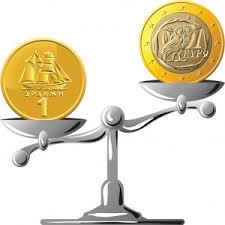Exchange rate regimes are methods adopted by a country’s authority to value their currency with respect to other currencies in foreign exchange market. Exchange rate regimes includes various different methods which can be adopted by countries based on their macroeconomic stability and performance. Countries can have one or more exchange rate which will be mentioned as unitary or multiple respectively.
The most common regime is floating exchange rate. Under this methodology, country’s currency will be decided by the market forces (i.e.) in terms of demand and supply. Some examples of floating exchange rate is dollar, British pound, euro , yen etc. Managed float regime is same as floating rate regime but with the intervention of central bank. In both floating rate regime and managed float regime fluctuation in exchange rate happens every day, but in managed float regime central bank steps in to keep the deviation under a range by buying and selling their currencies. By 2014, 82 countries used managed float.
Fixed exchange rate is that the value of currency with respect to other currency or to a basket of currency remains the same. Example: China. Fixed exchange currency can be adopted if the macroeconomic performance is stable.
Crawling bands is a methodology in which the value of the currency is allowed to deviate within a range around the central value. Other methodology called as conventional peg which pegs the domestic currency with either other currency or to a basket of currencies. Central banks intervene either directly or indirectly to ensure the pegged rate doesn’t get fluctuated beyond ±1.
If the exchange rates are fixed or almost fixed it falls under the category of hard peg and similarly if the exchange rate is fluctuation it is categorized as soft peg (i.e.) soft pegs are comparatively flexible. These are some of the exchange rate regimes followed by country’s to manage their currency’s value.
Click here for government certification in Accounting, Banking & Finance





15 Comments. Leave new
Smart writing
Very informative!
Very informative
Nice..
good post..
Nice topic chosen.
Great topic selection!informative article,good work!
Well explained
Being a student of commerce i know how this is such a dilemma.
Good job!
Great effort.
Informative 😀
well written!
Very well explained!
Very well written great efforts